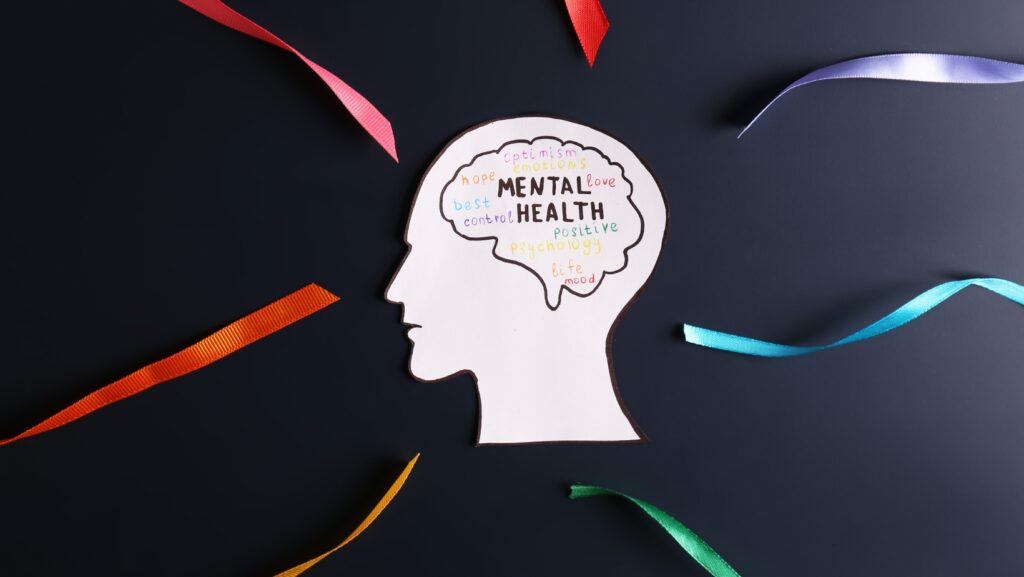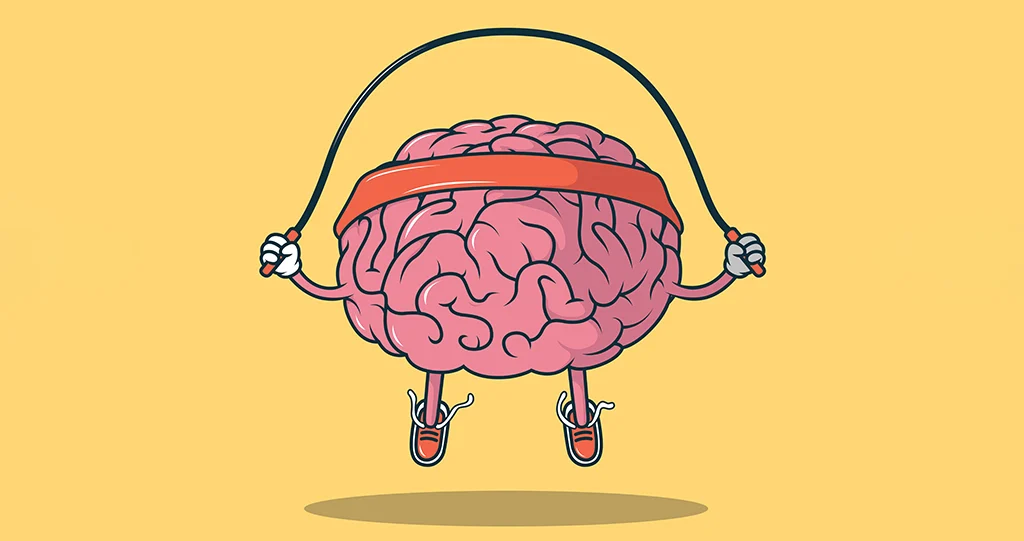Mental wellness and stress management are essential for living a healthy, happy, and productive life. In today’s fast-paced world, mental health often takes a back seat as we prioritize physical health, work, and daily responsibilities. However, neglecting mental wellness can lead to serious issues such as burnout, anxiety, and depression, negatively affecting our overall life satisfaction.
The ability to manage stress effectively is crucial for maintaining mental wellness. Stress, when left unchecked, can take a toll on both physical and mental health, leading to emotional exhaustion and reduced productivity. By learning how to cope with stress in healthy ways, individuals can navigate life’s challenges with greater ease and maintain a sense of balance and well-being.

This article delves into the concept of mental wellness, the effects of stress, and provides practical strategies for managing stress. By implementing these techniques, you can improve your mental health, reduce stress, and enhance your overall quality of life, leading to greater happiness and productivity in all aspects of your life.
What Is Mental Wellness ?
Mental wellness refers to a state of emotional, psychological, and social well-being, where an individual feels balanced and resilient in the face of life’s challenges. It encompasses how we think, feel, and behave, and influences how we handle stress, relate to others, and make decisions. Unlike mental illness, which refers to specific psychological conditions, mental wellness is a positive state of health, where one is able to function at their best, both mentally and emotionally.
At its core, mental wellness involves emotional regulation, meaning the ability to recognize, understand, and manage one’s emotions in healthy ways. People who are mentally well can experience a range of emotions but are not overwhelmed by them. They are able to cope with daily stressors without letting them disrupt their overall sense of stability.
Mental wellness also includes self-acceptance—having a positive sense of self-worth and recognizing one’s strengths and weaknesses. It encourages individuals to appreciate themselves and their abilities while acknowledging areas of growth. Moreover, it enables people to develop healthy relationships, communicate effectively, and foster meaningful connections with others.
Ultimately, mental wellness is a continual process, not a fixed state. It requires consistent effort, self-awareness, and the ability to seek support when necessary. By nurturing mental wellness, individuals can enhance their ability to manage stress, adapt to change, and lead fulfilling lives. It is an ongoing process of maintaining emotional and psychological stability, and it encompasses many facets of life, including:
- Emotional health: The ability to regulate emotions in a healthy and constructive way.
- Psychological resilience: The ability to recover from adversity and continue moving forward despite challenges.
- Social well-being: The ability to form healthy relationships and communicate effectively with others.
- Self-acceptance: The ability to accept one’s strengths and weaknesses without judgment.
Mental wellness is a proactive approach that focuses on prevention and positive mental health practices. It’s not just about avoiding mental illness, but about creating an overall sense of well-being that improves the quality of life.
Why Is Mental Wellness Important ?
Mental wellness is crucial because it directly impacts our overall quality of life. When we are mentally well, we are better equipped to cope with life’s challenges, make decisions, and manage stress in healthy ways. This sense of balance and resilience enables us to navigate both everyday tasks and more significant life events with greater ease and confidence, promoting a stable and fulfilling life.
Moreover, mental wellness enhances our relationships with others. When we feel emotionally balanced, we are more likely to communicate effectively, empathize with others, and form deeper, more meaningful connections. Healthy relationships are foundational to a sense of belonging, social support, and overall happiness, which are essential for our mental and emotional well-being.
Mental wellness also plays a critical role in our physical health. Chronic stress and emotional instability can weaken the immune system, increase the risk of cardiovascular diseases, and contribute to conditions like insomnia or digestive issues. By prioritizing mental wellness, we not only improve our emotional state but also safeguard our physical health, enabling us to live a healthier, more productive life.
Maintaining mental wellness is essential for several reasons:
Improves Emotional Balance: Mental wellness helps maintain emotional stability, enabling individuals to manage life’s ups and downs effectively. With improved emotional intelligence, mentally well people better understand and regulate their emotions, which helps them handle stress, anxiety, and negative feelings without being overwhelmed.
Enhances Productivity and Focus: Mental wellness boosts cognitive function, leading to better focus and productivity. Individuals who prioritize their mental health are more creative, organized, and able to stay on task, allowing them to handle challenges more effectively and perform efficiently in both personal and professional settings.
Strengthens Relationships: Mentally well individuals communicate more clearly, show empathy, and build stronger, more meaningful relationships. Emotional balance helps them navigate conflicts and connect with others in a positive, respectful manner, leading to healthier, more supportive connections with friends, family, and colleagues.
Boosts Physical Health: Mental wellness is closely linked to physical health. Managing stress and emotions reduces the risk of physical problems like high blood pressure, heart disease, and sleep disorders. A healthy mind contributes to better overall physical well-being, creating a balanced body and mind.
Increases Resilience: Mentally well individuals are more resilient and able to bounce back from challenges. Their ability to stay optimistic and adaptable in tough situations helps them recover more quickly and maintain hope during adversity, fostering long-term emotional strength.

Stress: A Natural but Challenging Response
Stress is the body’s natural reaction to pressure or demands from the outside world. It helps us respond to challenges, whether they are physical, emotional, or mental. In small amounts, stress can be helpful by giving us energy and focus. It can motivate us to meet deadlines, solve problems, or stay alert in dangerous situations. However, if stress continues for a long time or becomes too intense, it can affect our well-being. Chronic stress may lead to problems like anxiety, trouble sleeping, or physical illness. Learning how to manage stress is important for maintaining a healthy and balanced life.
What Happens in the Body During Stress ?
When the body perceives a stressor (whether real or imagined), it activates the “fight-or-flight” response. This physiological response triggers the release of stress hormones, such as adrenaline and cortisol, which prepare the body to take action. These hormones increase heart rate, elevate blood pressure, and heighten alertness, making the body more capable of dealing with an immediate threat. In the short term, this response can help individuals perform under pressure.
However, prolonged or chronic stress keeps the body in a heightened state of arousal, which can lead to various negative health effects. Chronic stress affects multiple systems in the body, including the cardiovascular, immune, and digestive systems. Over time, prolonged exposure to high levels of cortisol and other stress hormones can weaken the body’s immune response, increase the risk of cardiovascular diseases, and lead to issues such as digestive problems and sleep disturbances.
The Impact of Chronic Stress on Mental Health
While the physical effects of stress are often noticeable, chronic stress also severely impacts mental and emotional well-being. Prolonged stress can lead to anxiety, depression, and cognitive impairments, making it harder to manage emotions, focus, and make decisions. Over time, the strain on mental health can affect overall quality of life and hinder emotional resilience. Continuous exposure to stress can lead to:
- Anxiety: Chronic stress often triggers intense feelings of worry and nervousness. This can interfere with focus, disrupt sleep, and make it difficult to complete daily tasks effectively.
- Depression: Persistent stress is strongly linked to the onset and worsening of depression. It can drain energy, reduce motivation, and lead to feelings of hopelessness and helplessness.
- Cognitive Impairment: Long-term stress can negatively impact cognitive abilities such as memory, concentration, and decision-making. This makes it harder to process information or think clearly when under constant pressure.
- Emotional Instability: Elevated stress levels can cause mood swings, irritability, and emotional outbursts. Individuals may also feel overwhelmed, losing a sense of control over their emotions and reactions.
The Connection Between Stress and Mental Wellness
Stress has a strong effect on mental wellness. When handled properly, stress can be a positive force that encourages personal growth, emotional strength, and a sense of achievement. It helps people stay focused and motivated, especially during difficult times or when facing important goals.
However, when stress is not managed well, it can harm mental health. Constant or overwhelming stress can lead to burnout, emotional tiredness, and mental health issues like anxiety or depression. Ignoring stress may make daily tasks harder and affect relationships and overall happiness.
To maintain mental wellness, it is important to manage stress in healthy ways. This includes building good habits, finding time to relax, and using positive coping skills. Taking steps to reduce stress helps protect mental health and supports a more balanced and fulfilling life.
Effective Stress Management Techniques
Managing stress is a continuous journey that demands regular effort and self-awareness. Below are some proven strategies for effectively handling stress and fostering mental wellness:
Mindfulness and Meditation Practices

Mindfulness is the practice of being fully present in the moment, observing thoughts, emotions, and sensations without judgment or reaction. It helps individuals cultivate awareness and emotional balance. Meditation, a structured form of mindfulness, promotes deep relaxation and mental clarity. Both practices are shown to effectively reduce stress, improve emotional regulation, and support mental wellness. By regularly engaging in mindfulness and meditation, individuals can enhance their ability to cope with life’s challenges, improve focus, and foster a greater sense of peace and well-being. Together, these techniques play a key role in maintaining a healthy mind.
- Benefits: Research shows that mindfulness and meditation can reduce cortisol levels, alleviate anxiety, improve sleep, and enhance overall well-being. These practices also promote greater self-awareness, helping individuals better understand and manage their stress responses.
- How to Practice: Begin with brief guided meditation or mindful breathing sessions. Apps such as Headspace and Calm provide excellent resources for beginners. As you grow more comfortable with the practice, gradually increase the length of your sessions for deeper relaxation and mindfulness.
Exercise and Physical Activity
Physical exercise is a powerful stress reliever that boosts the release of endorphins, the body’s natural “feel-good” chemicals, helping to reduce stress and improve mood. Regular physical activity also promotes better overall health, increases energy levels, and enhances cognitive function. By incorporating exercise into your routine, you not only improve your physical fitness but also support mental wellness, making it an effective tool for managing stress and maintaining a positive outlook.
- Benefits: Exercise is an effective way to manage stress, as it reduces the levels of stress hormones like cortisol while increasing the production of endorphins, the body’s natural “feel-good” chemicals. These endorphins help alleviate feelings of anxiety and improve overall mood. Additionally, regular physical activity promotes better sleep, which is essential for maintaining mental wellness.
- How to Get Started: To reap the benefits of exercise, aim for at least 30 minutes of moderate-intensity activity most days of the week. Activities such as yoga, swimming, walking, cycling, or dancing are excellent choices for relieving stress and improving mental health. Start with activities you enjoy and gradually increase the intensity or duration as you become more comfortable.
Building a Strong Support System
Social support is crucial for mental wellness. A strong network of friends, family, or colleagues can help you cope with stress more effectively and offer emotional relief during tough times. Knowing that you have people to rely on provides a sense of security, reduces feelings of isolation, and can boost resilience, making it easier to face life’s challenges with greater strength and perspective.
- Benefits: Social connections offer emotional validation, reduce feelings of isolation, and provide opportunities for problem-solving and collaboration. Having a strong support network helps you navigate challenges with greater ease and fosters a sense of belonging.
- How to Strengthen Your Support System: To build and maintain your support system, make time for social activities, reach out to loved ones when feeling stressed, and proactively nurture relationships. Joining social groups or support networks can also expand your circle, providing additional emotional support during difficult times.
Adequate Sleep and Rest
Sleep is crucial for both mental and physical well-being. Chronic stress can disrupt sleep, causing issues like insomnia or irregular sleep patterns. Inadequate sleep, in turn, can worsen stress, creating a harmful cycle. Poor sleep affects cognitive function, mood, and overall health, making it harder to cope with daily challenges. Prioritizing restful sleep is essential for managing stress and maintaining mental wellness, helping to break the cycle of stress and sleep disruption.
- Benefits: Sufficient sleep enables the body and mind to recover, recharge, and maintain emotional balance. It enhances cognitive function, improves mood, and contributes to overall well-being, making it easier to manage stress and stay mentally healthy.
- How to Improve Sleep: To improve sleep quality, establish a consistent sleep schedule, develop a relaxing bedtime routine, and create a comfortable sleep environment. Avoid stimulants such as caffeine and limit the use of electronic devices before bed to promote deeper, more restful sleep.
Developing Healthy Eating Habits
What we eat has a significant impact on mental health. A balanced, nutritious diet supports cognitive function and emotional stability, while poor eating habits can worsen stress and lead to mood swings. Proper nutrition is essential for maintaining mental wellness and managing daily emotional and psychological challenges.
- Benefits: A healthy diet promotes brain health and helps regulate stress levels. Nutrient-dense foods provide the energy and stability needed to manage stress effectively, supporting both mental and physical well-being.
- How to Eat for Stress Management: Prioritize whole foods such as fruits, vegetables, lean proteins, whole grains, and healthy fats. Minimize processed foods, sugary snacks, and excessive caffeine, as they can increase stress and contribute to anxiety.
Time Management and Goal Setting
Effective time management helps reduce feelings of being overwhelmed by ensuring that tasks are completed in an organized and manageable way. Goal setting provides direction and helps individuals prioritize important tasks.
- Benefits: Goal setting provides a sense of purpose and accomplishment, while time management helps reduce procrastination and stress.
- How to Manage Time Effectively: Use tools like planners, to-do lists, or digital apps to organize tasks and set realistic deadlines. Break larger tasks into smaller, manageable chunks, and prioritize based on importance.
Seeking Professional Help

If stress becomes unmanageable or results in mental health issues like anxiety or depression, seeking professional help is crucial. Therapists, counselors, and mental health experts offer valuable guidance, support, and treatment to help individuals cope with stress more effectively. Professional assistance can provide the tools needed to improve mental wellness and regain emotional balance during challenging times.
- Benefits: Professional therapy provides personalized strategies to address the underlying causes of stress and equips individuals with coping tools to manage emotional challenges effectively. It helps improve mental resilience and emotional well-being.
- How to Find Help: Search for licensed mental health professionals in your area or explore online therapy options. Approaches like Cognitive Behavioral Therapy (CBT) and other therapeutic methods can assist in reshaping negative thought patterns and developing healthier ways to cope with stress.
Conclusion
Mental wellness and stress management are essential for living a balanced and fulfilling life. While stress is unavoidable, how we cope with it significantly affects our mental and physical well-being. By adopting healthy coping strategies, we can reduce the negative effects of stress and foster a sense of inner peace and balance.
Prioritizing mental wellness involves practices like mindfulness, regular exercise, maintaining a nutritious diet, and seeking social support. These strategies not only help manage stress but also improve emotional regulation, cognitive function, and overall health. Having a strong support network further enhances one’s ability to cope with stress, providing comfort and perspective during difficult times.
Taking care of your mental health is an ongoing journey that requires commitment and self-compassion. By consistently applying the techniques outlined in this article, you can build emotional resilience, reduce stress, and cultivate a life filled with peace, balance, and happiness. Embrace the process of self-care, and prioritize mental wellness as an integral part of a fulfilling life.
FAQs
What is mental wellness ?
Mental wellness refers to a state of emotional, psychological, and social well-being where an individual can cope with stress, build relationships, and make choices that enhance life satisfaction.
How does stress affect mental health ?
Chronic stress can lead to anxiety, depression, cognitive impairment, and emotional instability, making it harder to manage daily tasks and emotions effectively.
What are some effective ways to manage stress ?
Effective stress management techniques include mindfulness, meditation, regular exercise, healthy eating, social support, and ensuring adequate sleep.
How can mindfulness help reduce stress ?
Mindfulness helps by increasing self-awareness and emotional regulation, allowing individuals to observe their thoughts and feelings non-reactively, which can reduce anxiety and improve focus.
Why is sleep important for stress management ?
Adequate sleep allows the body and mind to recover, rejuvenate, and maintain emotional balance, making it easier to cope with stress.
When should I seek professional help for stress ?
If stress becomes overwhelming or leads to mental health issues like anxiety or depression, it’s important to seek help from a therapist or counselor.


